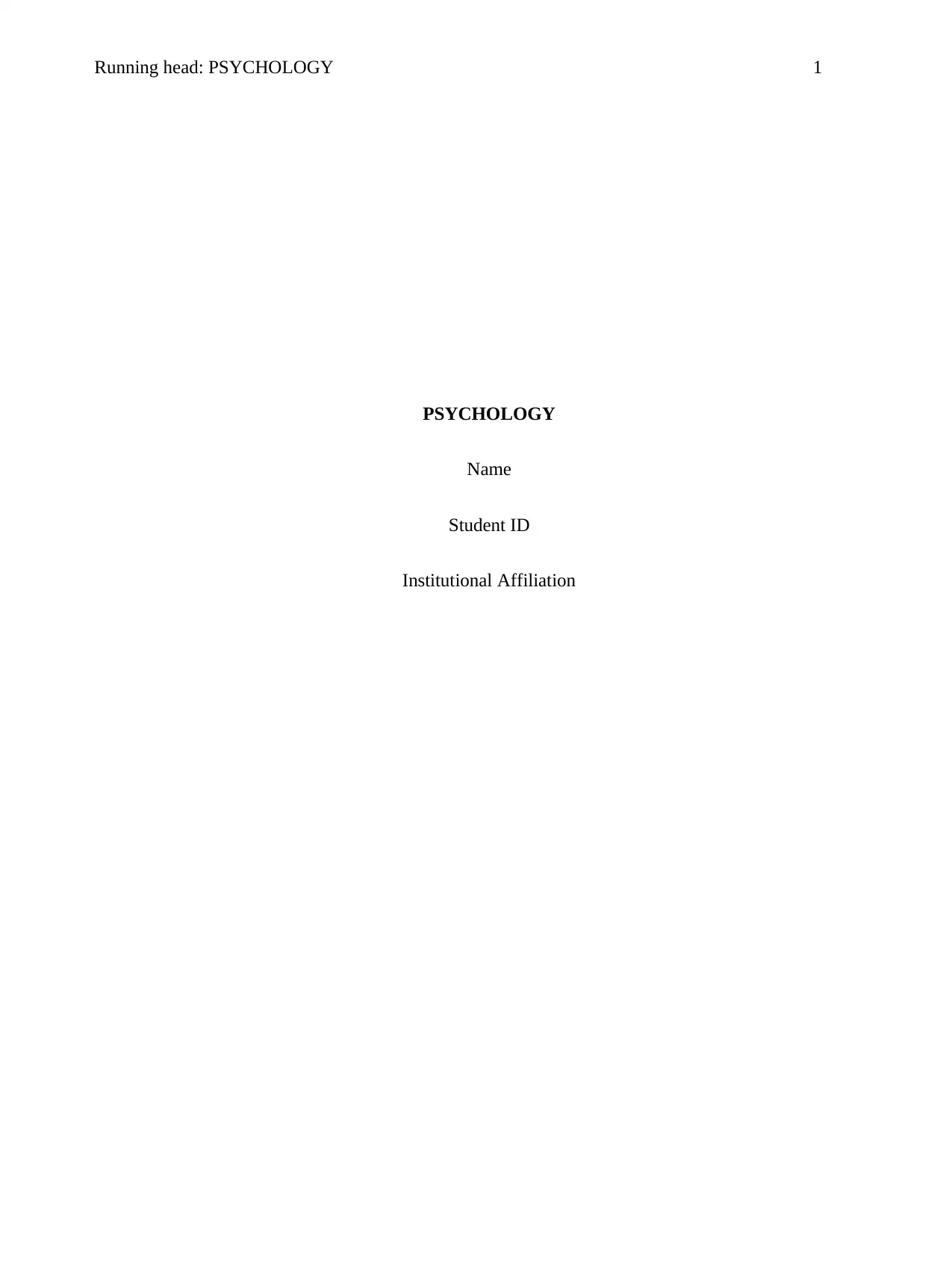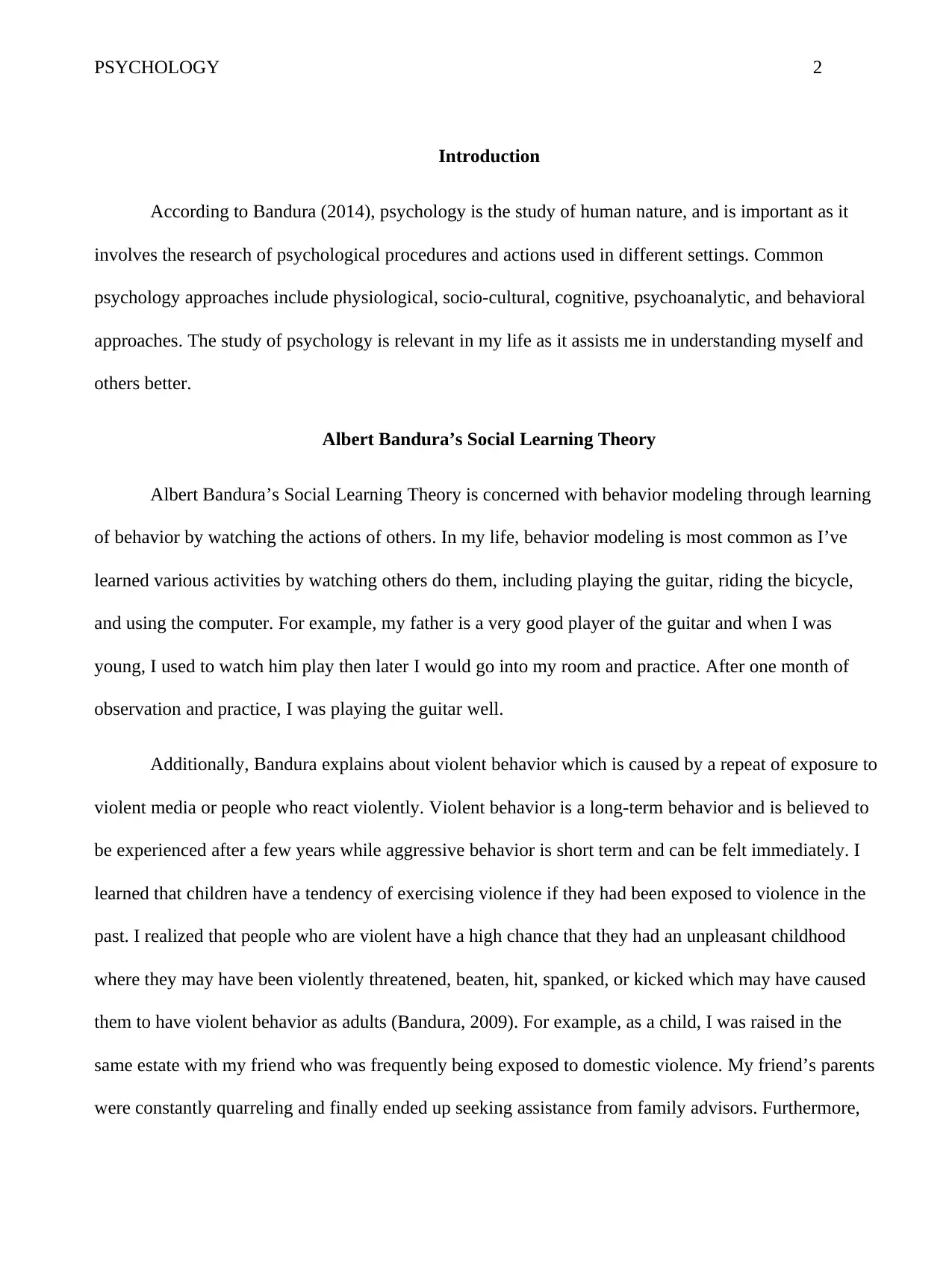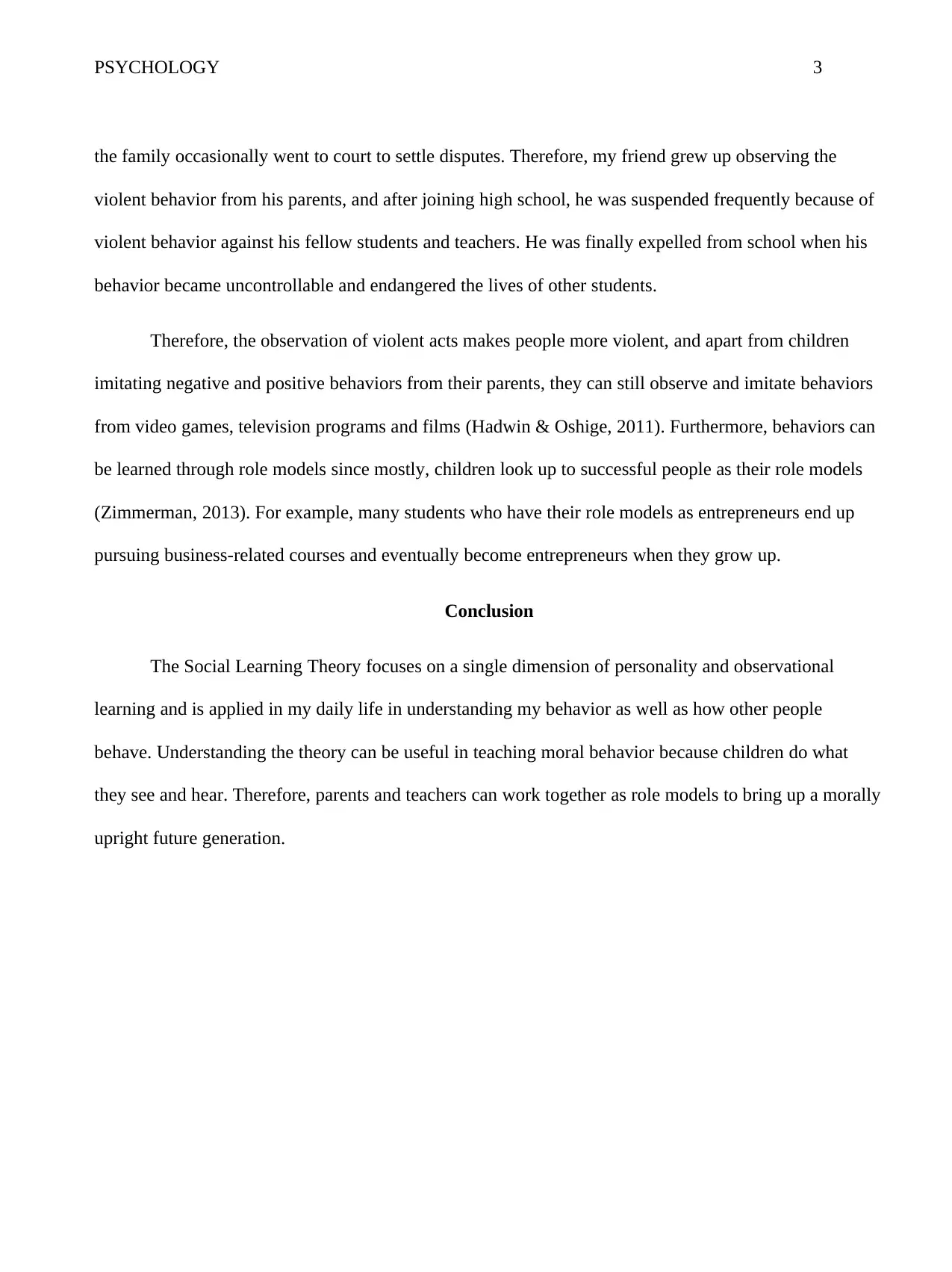Psychology Essay: Social Learning Theory and Behavior Modeling
VerifiedAdded on 2023/06/04
|4
|749
|441
Essay
AI Summary
This essay delves into Albert Bandura's Social Learning Theory, examining how individuals learn through observation and modeling. It explores key concepts such as behavior modeling, highlighting how individuals, including the author, acquire skills like playing the guitar through observation and practice. The essay also addresses the impact of exposure to violence, linking it to aggressive behavior and emphasizing the role of role models in shaping behavior. It provides real-life examples, such as the impact of domestic violence on a friend's behavior, and discusses how children can imitate behaviors from various sources, including media and successful figures. The conclusion emphasizes the importance of understanding the theory for teaching moral behavior and the collaborative role of parents and teachers in shaping future generations.
1 out of 4











![[object Object]](/_next/static/media/star-bottom.7253800d.svg)